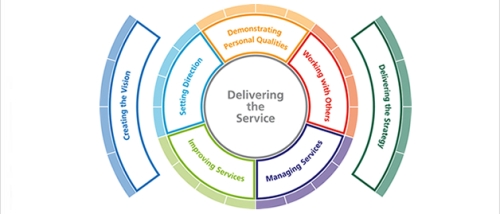
“I always find going on holiday an incredibly stressful experience. Not the trip itself, but finding the right time to go. There’s always something going on at work that you feel like you ought to be there for, or you worry about someone else being away at the same time, or… Well, ok, some of them are probably just feeble excuses for the fact that you just don’t want to leave your baby all on its own. But it is hard to find a good time.”
Do you recognise these words? Spoken or unspoken is this how you feel each year?
Most families take a holiday of some kind during the summer. But I’ve known leaders who don’t really join in.
Yes, the body is there but where is the mind? Oh yes, they leave the office for a week or so. They may even visit their villa abroad or a nice five star hotelsomewhere. But access to a phone service and good wifi are a priority and, back at base, they know to expect a call from the boss at least twice a day.
I wonder if these “supermen” (it does tend to be men) know how silly the blackberry and the laptop look when used on a sun bed. But, of course, they are much too senior for anyone to tell them. Do you know the fable of the emperor’s new clothes?
I’m not talking here about the poor middle manager whose boss only agreed to a break, if they agreed to stay in touch. I’m taking about senior people who don’t feel they have a place in the world unless their work needs them.
In this day and age, it is a dangerous way to think, even if you are at the top of the tree. It is dangerous for you in an age of uncertainty and it throws up questions about your leadership style.
Flexible organisations that can cope with a changing economic climate require distributed leadership. If a change happens locally, you need your local managers to feel empowered to lead a response from where they are without reference to you; you need them to take quick, clever action!
Have you have established a meaningful vision and a broad strategy to achieve it? Do your people feel empowered to make good decisions? Have you treated them decently? So, shouldn’t you be able to trust them to make good decisions on your behalf?
If you have pointed the ship in the right direction, shouldn’t they know how to keep it going? Certainly over a one or two week break. Of course you need to be available for a real emergency.
That just leaves you with the problem of how to impress your fellow holiday makers round the pool, of course. But I’ll leave you to meditate on that one.
I am Wendy Mason. I work as a Personal Development Coach,
 Consultant and Writer.I have worked with many different kinds of people going through all kinds of personal and career change, particularly those
Consultant and Writer.I have worked with many different kinds of people going through all kinds of personal and career change, particularly those- looking for promotion or newly promoted,
- moving between Public and Private Sectors
- moving into retirement.
I am very good at helping you sort out what you want, overcome obstacles and handle change. I offer face to face, telephone and on-line coaching by email or Skype
Email me at wendymason@wisewolfconsulting.com or ring ++44(0)2084610114 or ++44(0)7867681439 to find out more.
Related articles
- Five Myths of Leadership (thinkup.waldenu.edu)
- What kind of boss do you have? (techwag.com)






